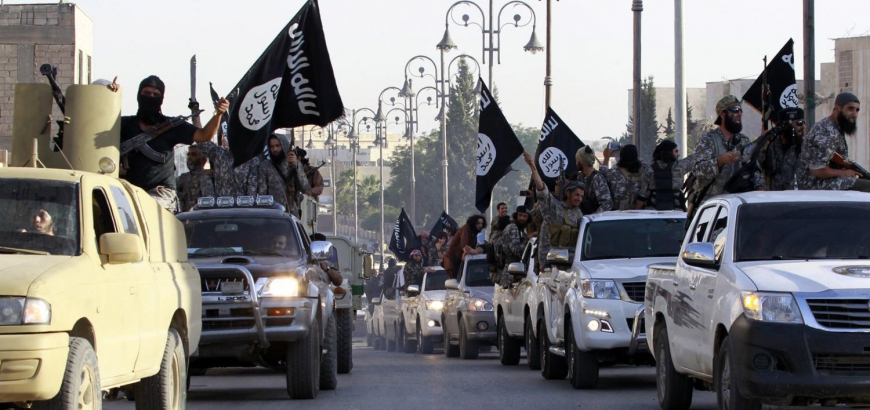The negative effects of the Islamic State’s (ISIS) control over the northern and eastern countryside of Aleppo for three years are not just military and political, but extend to the economy and social issues.
Agriculture has faced the biggest of these side effects thanks to the period of the group’s control, as a result of the planting of mines, digging of trenches, raising of sand berms and the extension of front lines into the most fertile agriculture areas, especially the plains of Azaz, over multiple growing seasons.
Agricultural problems have accompanied a downturn in both trade and industry, as a result of the lack of interest from ISIS due to military affairs being its priority. This was worsened by the continuous war ISIS was carrying out against Free Syrian Army units and the group's seizure of villages, gradually transforming them into military areas devoid of residents and schools while also putting a halt on building and transport.
But the economic impact continues despite ISIS being expelled from these areas at the hands of the opposition six months ago, as the militants disassembled machinery from bakeries, water engines and hospitals, and brought the equipment to other areas under its control.
“The group stole everything that could be relied upon for securing the needs of people. It dismantled bakeries and stole all the equipment, tractors, electricity generators and medical equipment. Nothing is left in the liberated areas,” Munzer al-Salal, head of the Destabilization Committee in the Free Aleppo Province Council, said. “The harm that the group inflicted was not limited to material issues, but extended into social and psychological aspects,” he added.
For his part, Ali Tamer, head of the local council in the village of Souran in the Aleppo countryside, told the Iqtisad website: “The group caused a lot of problems which have affected all economic aspects and the livelihood of citizens. In terms of agriculture, the group stole all the motors from the farmlands and planted mines, which has prevented the land from being used up to today, and they also dug trenches and raised sand berms which farmers paid large sums to refill and take down.”
“The period of the group’s control, and even after, left a major negative impact. Souran suffers from many difficulties after the group stole backup bakery equipment, drinking water and sewage engines,” Tamer said.
“The group also exploited the infrastructure for its war,” he added, “such as the road and sewage networks, but also digging tunnels and using side and main roads to move trucks, which caused the sewage network to break down and the roads to be destroyed, so it is de facto out of operation. There is pollution in the drinking water in Souran’s districts.”
Tamer continued: “There has been immeasurable damage carried out against the residents of villages and towns the group controlled, including the looting of civilian homes and stores and rising prices, as well as the destruction of some schools and public and private buildings as a result of booby-trapping, bombardment and their use for battles, in addition to the continuous spread of fear and panic due to the oppression the group practiced.”
This article was translated and edited by The Syrian Observer. Responsibility for the information and views set out in this article lies entirely with the author.


